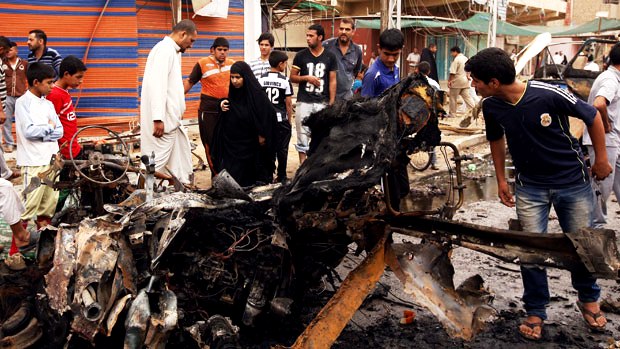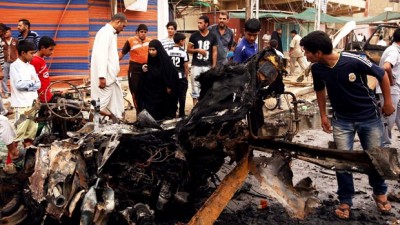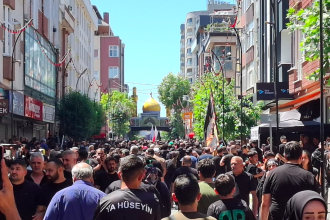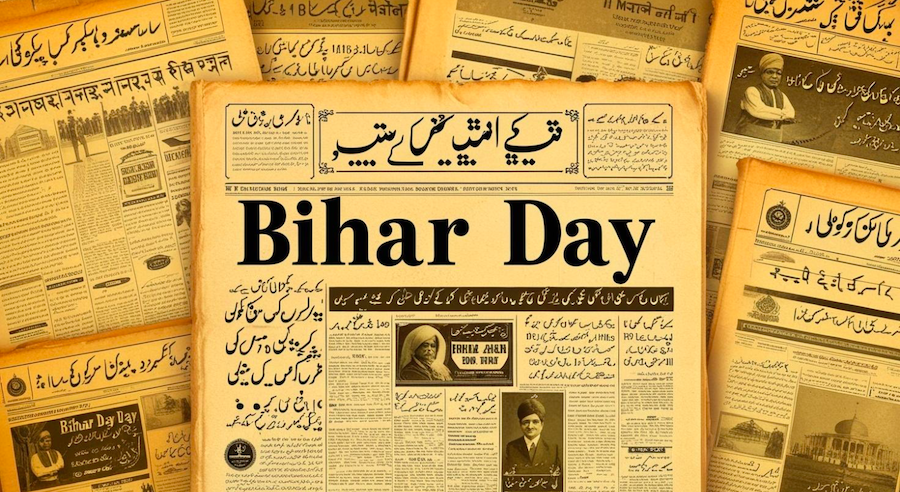With scores of people being killed in the recent Iraq bombings, the question arises: is this another form of Shia genocide or simply the US leaving a troubled land behind?
Raziqueh Hussain for BeyondHeadlines
Iraq erupted into a nightmare of sectarian hatred unleashed by the fall of Saddam Hussein’s suffocating dictatorship. An estimated 104,000 to 113,000 Iraqi civilians died, according to the Iraq Body Count website, most of them killed by other Iraqis.
Prime Minister Nouri Al-Maliki signaled on Monday – one of the deadliest days in months – that he was poised to make changes to his security team, after a month of unrest that has killed 370 people. “We are about to make changes in the high and middle positions of those responsible for security, and the security strategy,” he told reporters. Changes were already understood to have been put in place on Tuesday evening.
Ten years after the US-led invasion of Iraq, tensions fester between the Shia-led government of al-Maliki and the Sunni Arab minority.
Seyyed Musa Khoie, an expert on Shia affairs from Iraq believes the West has become adept in creating differences amongst Muslims and working according to careful plans. He added that adopting a logical position regarding the large number of Shia killings is necessary and not enough has been done about the Shia genocides. He says, ”It seems that in Iraq the West intends to inflame the Shia /Sunni issue. In 1900 when Britain entered Iraq, Shias were a majority. Then they installed a Sunni regime which eventually ended with Saddam. Now they are provoking Sunnis in Iraq to claim that Iraq and Baghdad belong to them. But they know that the majority in Iraq comprises Shias. The Shia killings are happening daily in Iraq and this is a very dangerous move which can be described as genocide.”
Journalist Rafiq A. Tschannen, a Swiss national who converted to Islam at the age of 15 who was stationed in Iraq until recently reveals, “My feeling and experience in working in Iraq from 2003 until 2011 is that the so-called Sunni-Shia divide is mostly political and the religious part is really not very important. Iran supporting the Shia government and Saudi Arabia the Sunni opposition? What is that? Power play and not religion.”
Mumbai-based jeweler, Abu Talib Rizvi agrees that politics plays a main role. He says, “I condemn Shia genocide because it is as old as the religion of Islam. The Shias have always been at the gunpoint of political agenda. The victims of this genocide have mainly been the children of Prophet Mohammad, right from his daughter Fatima and grandsons Hasan and Hussain to several Sayyed of his progeny. History only repeats and re-repeats itself for the migrated, exiled, banished and dispersed Shias.”
Mohsen Rizvi, of Shia International, a global Shia movement started in the US wrote an open letter to The United Nations against Shia killings. In that he states, “In the light of the ongoing atrocities against the innocent Shias around the world, particularly in Pakistan, Bahrain and Iraq, the growing question that surrounds our conscience is: What can we do to stop the atrocities? Every time we hear about another incident of Shias being killed in Pakistan, Bahrain or Iraq, our conscience is agitated, our doctrinal principles alerts us to act. The foundation of our beliefs on which we have established the structure of faith dictates that ignoring injustice or remaining silent over injustice is in itself injustice.” Talib Rizvi too feels that this problem needs media attention and recognition on an international level. “The United Nations Organization, Human Rights and other World bodies need to address this issue on a priority basis. The funders, middlemen, the terrorist networks and organization need to be banned for good and brought to justice,” he says.
For Pakistan, this reality is closer home, so the Shias feel for their Iraqi counterparts. Ghulam Haider, a professor with Karachi University, who lost his son in the 2010 Ashura bombing says, “Given the current level of systematic violence against the Shia Muslims, genocide is being silently allowed to happen in the world, be it Iraq or Pakistan. The recent attacks in Baghdad, where people including women and children were moving about their business, were targeted shows that it is a well-thought-out plan by extremists but the authorities have done nothing about it.”
There were widespread protests against Shia genocide (in Pakistan) the world over, but there doesn’t seem to be a stop there apart from some self-satisfaction to have raised a voice. Mohsen Rizvi further states, “The protests and the petitions only provided us with a feeling of contentment and self-satisfaction that we spoke against the injustice while the families of the victims continued with their normal lives with the dust from the graves of their beloved ones still smeared on their faces. We continued our life grappling with our wits, hoping not to hear the news of Shia killings while knowing subconsciously that we cannot quantify the results of our protest and our attempts to resolve the issue through diplomatic means. All we know is that the killings have intensified and our attempts to stop it have essentially failed.”
“The world does not realize that Shia Genocide is the world’s longest standing genocide with a 1400 year history. A genocide that by all means is more serious than the holocaust and other major mass murders that have tarnished the face of humanity over the years. From the murder of the Prophet’s daughter, Lady Fatima, just a few days after his death to the assassination of his grandson, Imam Hussain, in the blood stained fields of Karbala, this bloodshed ceases to end,” concludes Talib Rizvi.
In Iraqi culture in which neighbours refer to each other as brothers, the parables of Cain and Abel from the Old Testament are still being played out in this ancient land of prophets.
(Author is associated with a Sweden-based digital paper as an editor.)










